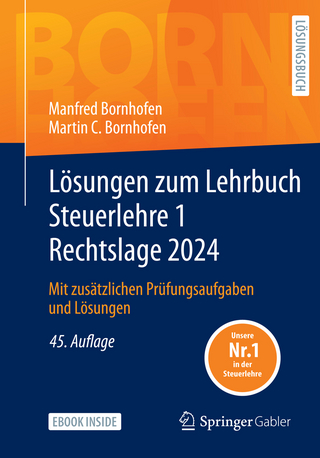
Corporate Governance in the Knowledge Economy
Springer International Publishing (Verlag)
978-3-030-78872-8 (ISBN)
With the transition into the Knowledge Economy, a formidable series of new challenges arise within the corporate governance space. This book tackles the issue of corporate governance along two axes. Firstly, it confronts the developments in corporate governance within the context of the Knowledge Economy and all its implications in relation to the pre-eminence of intangible assets, the advent of technologies such as smartphones and advanced forms of artificial intelligence, and cultural changes associated with the incorporation of Gen Y into the workforce and the proliferation of social networks and effects such as Big Data and cyber-threats. Secondly, it highlights the challenges for multinational organizations and the tension that exists between headquarters and subsidiary offices due to the need to combine the corporation's ethical culture and corporate governance values with the institutional forces of the subsidiaries' context. The combination of these two axes addressed viz aviz the relationship between senior management and the rank and file of the organization to create an ethical corporate culture leads to a completely different positioning of corporate governance and make the book truly unique and of interest to researchers, students of corporate finance and corporate governance alongside practitioners within financial organizations and more broadly.
lt;p>Paul David Richard Griffiths is Academic Director of postgrads in Banking and Fintech at EM Normandie Business School, Metis Lab. He lectures on Fintech, Business Ethics & Governance, Banking Regulations, Knowledge Management, Data Visualisation and the Anglo-Saxon Financial System. Prior to becoming a full-time academic, Paul spent 20 years in leadership positions at global management consulting firms, serving Boards of blue-chip companies, particularly in the financial services sector. He specialises in management of intangible assets such as intellectual capital and related technologies such as artificial intelligence and Fintech. Paul's interests in research bridge across the fields of Fintech and knowledge management and the development of knowledge networks, particularly in banking. He holds a Master's degree in engineering; he has been a Humphrey Fellow (Fulbright Commission) at the University of Minnesota; and holds a doctorate in business administration. He is a prolific writer in professional and academic publications and a renowned speaker at conferences and seminars.
Chapter 1 Conceptual Framework: Corporate responsibility, governance, business ethics, culture, and the Knowledge Economy.- Chapter 2 First things first: The hidden costs of poor governance.- Chapter 3 Challenges to global governance in MNE: Strategy adaptation to local markets.- Chapter 4 Challenges to local governance in international business: The risks of corruption.- Chapter 5 Different approaches to governance in adopting a sustainable business model.- Chapter 6 The way forward.
| Erscheinungsdatum | 26.08.2021 |
|---|---|
| Reihe/Serie | Palgrave Studies in Accounting and Finance Practice |
| Zusatzinfo | XVI, 251 p. 26 illus., 20 illus. in color. |
| Verlagsort | Cham |
| Sprache | englisch |
| Maße | 148 x 210 mm |
| Gewicht | 430 g |
| Themenwelt | Wirtschaft ► Betriebswirtschaft / Management ► Finanzierung |
| Wirtschaft ► Betriebswirtschaft / Management ► Rechnungswesen / Bilanzen | |
| Wirtschaft ► Betriebswirtschaft / Management ► Unternehmensführung / Management | |
| Schlagworte | Business Ethics • corporate governance and artificial intelligence • corporate governance and data • Corporate Responsibility • Corruption • Global Governance • Governance • International business • Multi-national enterprises (MNE) • sustainability |
| ISBN-10 | 3-030-78872-5 / 3030788725 |
| ISBN-13 | 978-3-030-78872-8 / 9783030788728 |
| Zustand | Neuware |
| Haben Sie eine Frage zum Produkt? |
aus dem Bereich


